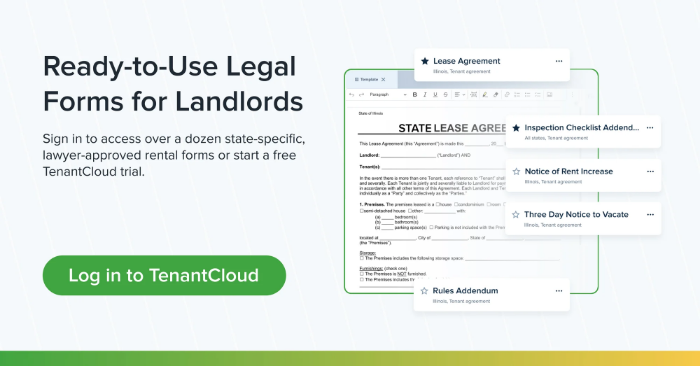Do you have squatters in your Hawaii property? Whether you’ve inherited a piece of land with unauthorized occupants or have a rental property with an expired lease, it’s important to be aware of your legal rights to remove individuals from your property.

In this blog, we’ll cover everything you need to know about Hawaii squatters’ rights law, including when an adverse possession claim becomes valid, how to evict squatters, and ways you can protect your property from unauthorized occupants.
How Does Hawaii Law Define a Squatter?
In Hawaii, a squatter is an individual who occupies a foreclosed, abandoned, or unoccupied property without the permission of the property owner. Squatters have no legal ownership of the property and are unauthorized to occupy the land. Vacant property rights do not exist in Hawaii. Instead, ownership is based on the legal title.
Although squatters are occupying a property without permission, they aren’t considered trespassers under Hawaii law. Squatting is treated as a civil manner, while trespassing is considered a criminal offense according to Hawaii revised statutes. It can be easier to deal with squatters in Hawaii since it is explicitly illegal; however, Hawaii squatter rights laws do exist and can complicate the process.
What are Hawaii Squatters’ Rights Laws?
Hawaii squatters’ rights laws mainly involve adverse possession claims. An adverse possession claim gives a squatter ownership of the property after 20 years of continuous possession. If a squatter can prove an adverse possession claim, the legal title may transfer from the property owner to the squatter. There are specific criteria that must be met before an adverse possession claim becomes valid. Let’s explore these items in more detail.
- Actual Possession – To claim squatters’ rights through an adverse possession claim, the squatter must be treating the property as if they had ownership. This means keeping up with property maintenance, such as landscaping, painting, and removing debris.
- Continuous Possession – The squatter must have continuous possession of the land and dwelling unit for 20 continuous years. Leaving for just a few weeks would cause the possession timeframe to reset. This is one of the hardest pieces to prove.
- Exclusive Possession – Hawaii Revised Statute § 657-31 requires that the squatter is the only individual on the property. Sharing the property with anyone else, including the owner, tenant, or other squatters, voids the adverse possession claim.
- Open and Notorious Possession – This provision means that it’s obvious that squatters are occupying the property. The squatters are not concealing their presence on the property. The landlord, property management company, or property owner can tell after a reasonable investigation that the squatters are on the property.
- Hostile Claim – A hostile claim can take on different meanings under state law. For one, it can mean occupying the property without the knowledge that it belongs to someone else. The second definition involves a good-faith mistake, such as an invalid deed being recorded or incorrect legal ownership documentation. The squatter wasn’t aware of the real legal status of the property. The final definition is the awareness of trespassing. The individual knows they have no legal right to be on the land.
For more information on Hawaii squatters’ rights law and adverse possession laws, visit Hawaii Rev Stat § 657-31. As a property owner, it’s also important to evaluate fraudulent adverse possession claims. Forging any type of document is illegal and can void squatters’ rights. If you believe a squatter is using fraudulent documents, seek legal advice from a qualified attorney.
Related: Hawaii Evictions | Laws and Protections
Does a Hawaii Color of Title Impact Squatters’ Rights Laws?
Hawaii squatters’ rights law isn’t always clear cut. In situations where property ownership is straightforward, a color of title comes into play. Typically, this occurs when ownership documents are missing. If an adverse possession claim is successful, the squatter can claim a color of title. However, all other requirements of the adverse possession claim must be met, especially the 20 years of continuous possession.
Are Squatters the Same as Holdover Tenants in Hawaii?
A holdover tenant is an individual who remains on the property after a lease has expired. Once the rental lease agreement ends, the tenant has no legal right to occupy the property. As a result, they are then considered a squatter. In some situations, landlord tenant laws are no longer valid once the lease term has ended.
However, if a holdover tenant continues to pay rent based on the prior lease term, the property owner must choose to accept or disregard the legal status. If the landlord decides to keep the tenant, they become an at-will tenant and can be evicted without notice.
If the Hawaii landlord does not want to accept the rent, they can issue a notice to quit. If the tenant does not voluntarily leave, the landlord will need to file a formal eviction. Adverse possession laws do not give holdover tenants the ability to make claims after they have been told to leave.
What are the Potential Risks of Claiming Squatters’ Rights in Hawaii?
While gaining ownership through adverse possession is possible, it can be extremely difficult. The main risks are facing legal action for trespassing and having to deal with an eviction. Additionally, there is a risk that the property owners pursue compensation for legal fees and property damage while occupied by potential squatters.
How Can Hawaii Property Owners Prevent Squatters?
There are ways you can protect your land from squatters as a property owner in Hawaii. Here are a few different strategies for maintaining the legal title of your land:
- Regular Visits – Visiting your property regularly is the best way to prevent squatters. Leaving a property vacant for months or years increases the risk of squatters. If you live out of state, consider hiring a property manager who can manage your heir property or rental property on your behalf.
- Pay Property Taxes – One of the main ways to prove ownership is to pay property taxes on time each year. Property taxes help document that you are the legal owner of the property. If you do face Hawaii squatters’ rights laws, you have evidence of your ownership through property taxes. Property tax records are public information. To check if you are current on your payments, visit the Hawaii Department of Revenue.
- Post Signs – Putting up “No Trespassing” signs is a simple and cost-effective way to deter squatters. Squatters will have difficulty using adverse possession laws when you make it clear that trespassers are not welcome. These signs are especially important if the property is vacant.
- Secure Entrances – Putting up fences, gates, and other structures to prevent access to your property is another great way to prevent squatters. If the house is empty, also consider boarding up windows and doors.
- Regular Maintenance – One of the conditions of an adverse possession claim is property maintenance. By completing all necessary property maintenance and upkeep, you can lower the risk of a successful Hawaii squatters’ rights law claim.
- Have Clear Leases – If you are renting your property, have clear leases with start and end dates. This will help if you need to evict a tenant and need proof that they are occupying your property without permission. Also, be sure to comply with all rent control policies in Hawaii.
Related: Alaska Squatter’s Rights | Laws and Protections Guide
Steps Landlords Can Take to Remove Unwanted Squatters
Unwanted squatters can cause more than just a headache for Hawaii property owners. They can damage your property, cause lost rent, and result in thousands of dollars in legal fees. If you do need to remove an unwanted squatter, there is a specific process you must go through, which differs based on whether the occupant had a legal lease in place. Here’s the typical process for evicting a squatter:
- Issue Trespass Notice – First, you will need to provide a written notice demanding that the squatter leave your property immediately. This is a formal notice that they do not have permission to be there. The notice should be sent through certified mail with a copy posted on the property.
- File Eviction Lawsuit – If the squatters do not vacate after the trespass notice, you will need to file an eviction lawsuit. You will need to prove to the court that you have legal ownership of the property and that the squatters do not have permission to be there. Hawaii state law requires five days’ notice before the court date.
- Receive Eviction Court Order – If your eviction case is approved, the judge will issue an order for the squatter to vacate, which is typically within the next five days.
- Enforce Eviction Court Order – The court order will be delivered to law enforcement, who will go to your property and remove the squatters if they do not leave voluntarily. It’s important to note that you must notify the squatters of any property left behind. Any property not collected within 15 days can be disposed of by the property owner.
For a prior tenant with an expired or lapsed lease, you can issue a 45-day notice to quit for a month-to-month tenancy or a 10-day notice to quit for a shorter tenancy. If the tenants have not paid their rent, you can issue a 15-day notice to pay. If they pay the balance due, you will have to go through a different eviction process. Evicting a prior tenant is more complicated than a squatter. It’s best to contact an attorney to walk you through the process.
What to Avoid Doing if You Have Squatters in Hawaii
There are some actions to avoid when dealing with squatters in Hawaii. If the occupants were prior tenants, you need to be aware of landlord tenant laws. Even if the occupants are not subject to landlord tenant laws, avoid doing the following:
- Changing Locks – Changing the locks on squatters or prior tenants could be considered an illegal eviction, giving the squatters rights.
- Turning Off Utilities – Shutting off basic utilities, like water and electricity, can be considered illegal in Hawaii.
- Intimidation – Trying to intimidate the squatters or prior tenants to vacate your property can delay the eviction process.
If you have an occupant you are trying to evict, you will need to follow the Hawaii eviction process or reach out to an attorney for advice on the next steps.
Related: Texas Eviction Laws Overview | Avoiding Legal Pitfalls
Is Legal Advice Needed Before a Squatter Eviction?
Before taking legal action, it’s always best to consult with an attorney. An attorney with extensive knowledge of property rights can help you comply with all local laws and complete the Hawaii eviction process in a timely manner. Additionally, attorneys can help you interpret Haw Rev Stat and United States Supreme Court rulings to ensure you are following all applicable legislation.
If you have a squatter who was a prior tenant, an attorney is an indispensable resource for managing landlord tenant laws. Unlike squatters, tenants have different rights, even if there is no valid lease in place. Failure to comply with these requirements could open the door to a lawsuit and a lengthy legal battle to regain access to your property.
Summary
As a property owner, it can be frustrating to navigate Hawaii's squatters’ rights law, especially if you are facing an adverse possession claim. However, understanding the requirements for a successful claim and the different ways you can protect your property from squatters is important. For more information about owning property, from how to report rental income to using the BRRRR method, check out our other posts.




